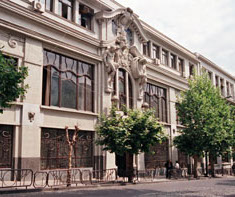
TBILISI, DFWatch–The National Bank of Georgia is increasing the refinancing rate because of an expected increase in inflation, which means that loans for a certain category of clients will get more expensive.
The explanation given for the National Bank’s decision, announced Wednesday, contrasts with what the government has said. It has so far not said anything about a possible rise in inflation.
The refinancing rate is now 5.5 percent. By the end of year, the rate will increase even further.
NBG representatives explained that the monetary policy is decided based on a macroeconomic prognosis, which shows that the domestic and international risks factors affecting inflation prognoses have increased.
“In line with the existing forecast, the Monetary Policy Committee considers it necessary to increase the monetary policy rate gradually to 6.5 percent by the end of the year,” the National Bank’s statement reads.
It explains that the recent months, inflation rates have kept increasing. The annual decrease in fuel prices partially offsets the inflation rise.
“The deterioration in economic trends in our main trade partners continues to negatively affect the Georgian economy. Goods export, and remittances have decreased, while the growth rate in tourism inflows is low,” the NBG statement continues.
“At the same time the pressure on the policy of the National Bank pushes up the long-term interest rates, reduces the efficiency of the monetary policy transmission and drives up the inflation expectations.”
According to NBG, the inflation will reach its target value in the second half of 2015. The dynamics of further changes in monetary policy will depend on the dynamics of expected inflation, tendencies in economic growth, global and regional economic environment.
In clear terms, this means that many customers will see their bank loans become more expensive.
Economic analysts believe that the greater problem is that the NBG’s decision indicates further interruption of the economic development. They think that this was the only way out in order to avoid increase of prices in the current situation. However, increasing the refinancing rate will eventually have a negative influence on banks and business development in Georgia.
“Increase of the refinancing rate is one of the ways to stabilize the lari, but at the cost of cutting business activity. This is a forced step, and of course the banks’ credit activity will be reduced, as the interest rate increases. This means more expensive loans for businesses and reduced activity in order to achieve the stability of the lari,” Roman Gotsiridze, head of Economic Development Center tells DF Watch.
He explains that the NBG’s motivation is to increase the interest rate, which is one of the methods to slow down the increase in prices.
“However, increased interest rate causes further loss of flexibility in the economy and it slows down business.”
He adds that the NBG’s step reflects a situation in which the currency crisis is deepening and in the end this will influence the economy and touch every citizen.
This is the third time NBG has increased the refinancing rate this year. A year ago, the refinancing rate was 4 percent. It is now 5.5 percent, and by the end of year it will further increase.
The next increase is planned for August 12.

